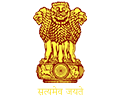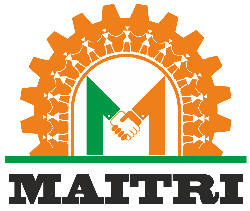Frequently Asked Questions (FAQs)
Frequently Asked Questions (FAQs)
Q. What are the major steps to start an export business in India?
- Establishment of Organization: Choose a catchy name and an attractive logo for your company.
- Open Bank Account: After obtaining your PAN number, open a bank account in any bank listed under AD (Authorized Dealer) Category 1. These banks, including Export Import Bank of India (EXIM), can process transactions with foreign parties.
- Obtain IEC Number: The Import and Export Code (IEC) is mandatory for businesses that want to import or export goods. It is a 10-digit unique number issued by the Directorate General of Foreign Trade (DGFT).
- Obtain RCMC: The Registration-Cum-Membership Certificate (RCMC) validates an exporter dealing with products registered under an Export Promotion Council authorized by the Indian government.
- Once the IEC and RCMC are obtained, you can officially begin your import-export business in India.
Q. How can I identify buyers in foreign countries?
- Buyer identification can be done through various sources such as B2B portals, web browsing for importers, participation in trade fairs, and exhibitions.
- Export Promotion Councils (EPC), Indian missions abroad, overseas chambers of commerce, and networking with friends and family can also help in finding buyers.
- Joining trade associations, councils, or non-profit organizations, and contacting the Indian Embassy are other effective ways to connect with buyers.
Q. How are exports treated under GST?
- All exports are classified as inter-State supplies and are treated as zero-rated supplies.
- Exporters can either export under bond/Letter of Undertaking (without paying tax) and claim a refund of the Input Tax Credit (ITC) or pay Integrated GST (IGST) and claim a refund of the IGST paid.
Q. What are the mandatory documents required for export and import?
- Bill of Lading / Airway Bill
- Commercial Invoice cum Packing List
- Shipping Bill
- Additional documents may include NOC/License or specific certifications like Phytosanitary Certificate, Health Certificate, or Drug License, depending on the product.
Q. What are the quality standards for exporting products?
- Export Inspection Council (EIC) ensures compulsory quality control and inspection of goods to be exported.
- Indicative quality standards include:
- ISI Standard
- AGMARK Standard
- ISO 9000 Standard
- BIS Hallmark
Q. What benefits can exporters in export-oriented units (EOUs) avail?
- EOUs can procure raw materials or capital goods duty-free, either through imports or domestic sources.
- They are eligible for GST reimbursement and duty reimbursement on fuels procured from domestic oil companies.
- EOUs can claim input tax credit and enjoy fast-track clearance facilities.
- They are exempt from industrial licensing for manufacturing items reserved for the SSI sector.
Q. What is the foreign trade policy in India?
- India’s Foreign Trade Policy (FTP) provides a framework to promote exports and trade. The current policy (2023-2028) focuses on expanding market share in existing products and exploring new markets and products.
- It also helps exporters leverage benefits of GST, improve ease of trading across borders, and promote exports from Micro, Small, and Medium Enterprises (MSMEs) and labor-intensive sectors.
Q. What is customs duty in India, and what are its types?
- Customs Duty is the tax imposed on goods when transported across international borders. It is intended to safeguard the nation’s economy, jobs, environment, and residents.
- Types of customs duty include:
- Basic Customs Duty (BCD)
- Countervailing Duty (CVD)
- Additional Customs Duty (Special CVD)
- Protective Duty
- Anti-dumping Duty
- Education Cess on Customs Duty
Q. What is ‘most favored nation’ (MFN) status, and what are its advantages?
- In international trade, the ‘most favored nation’ status refers to giving a country equal trade advantages as the most favored nation by the country granting such treatment.
- Advantages include access to a larger market, reduced trade barriers, and improved growth opportunities. India’s MFN partners include Bangladesh, Maldives, Nepal, and Sri Lanka.
Q. What are the incentive schemes by the Central and State Governments for exporters?
- Various schemes help offset infrastructural inefficiencies and provide exporters with a level playing field, such as:
- Financial Assistance
- Interest Equalisation Scheme (IES)
- Gold Card Scheme by RBI
- Niryat Rin Vikas Yojana (NIRVIK) Scheme
- Duty Drawback Scheme
- Duty Exemption and Remission Schemes
- Merchandise Exports from India Scheme (MEIS)
- Service Exports from India Scheme (SEIS)
- Remission of Duties and Taxes on Export Products (RoDTEP) Scheme
- Export Promotion Capital Goods (EPCG) Scheme
- Export Credit Guarantee Scheme
Q. What important aspects should be kept in mind while exporting?
- Sampling: Providing customized samples based on buyer demands helps secure export orders.
- Denomination of Export Contracts: All export contracts should be in either freely convertible currency or Indian Rupees, with proceeds realized in convertible currency.
- Pricing/Costing: Pricing should account for all expenses, aiming for maximum quantity sales at competitive prices with maximum profit margins.
- Customs House Agents: Exporters may use licensed Customs House Agents to assist with cargo clearance.
- Export Inspection Agencies: They help manufacturers maintain quality management systems, ensuring product consistency, pre-shipment inspection, and certification.



